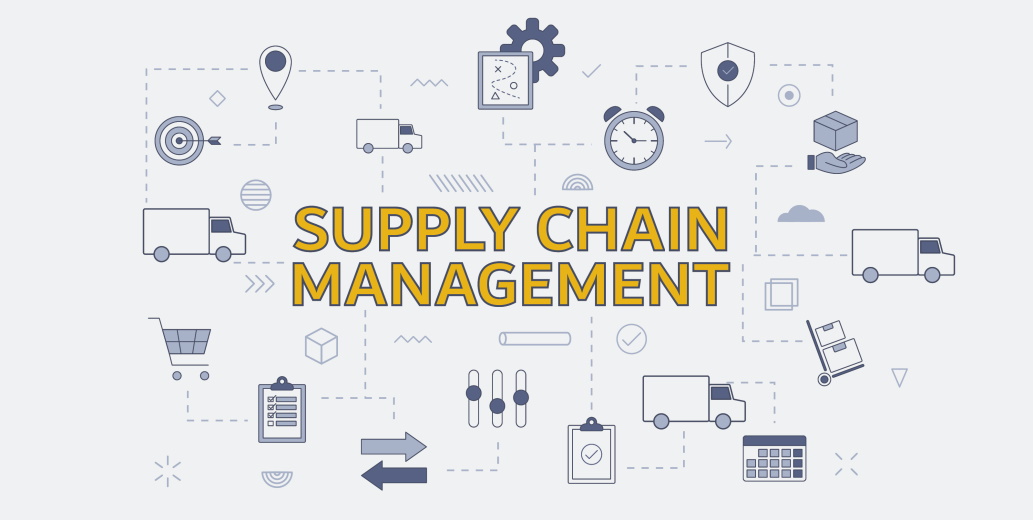A Deeper Look at Supply Chain Processes and Improving Your Supply Chain Management

Creating a well-functioning supply chain process is essential in order to ensure the successful operation of any business. With advances in technology, competition and customer expectations forcing businesses to constantly evolve their processes, it’s imperative that companies acquire an understanding of what effective supply chain management looks like. In this blog post, we’ll analyze how changes within the industry have disrupted conventional ideas about optimizing for cost savings and demonstrate how having a comprehensive strategy for improving supply chain management can provide long-term value creation.
How to improve your supply chain efficiency and reduce costs
One of the best ways to improve supply chain efficiency and reduce costs is through streamlining processes. This can be done by automating mundane tasks, such as data entry, shipping manifests, and order processing. Automation not only speeds up the process but reduces potential errors that could occur with manual data entry.
Another way to improve supply chain efficiency and reduce costs is to leverage technology. For example, implementing a transportation management system (TMS) can help optimize routes, set up notifications for delivery milestones, and even track shipments in real-time. Additionally, there are many industry-specific software solutions that can help increase operational visibility while reducing manual workflows.

Streamlining inventory management is another key factor in improving supply chain efficiency and reducing costs. By analyzing usage trends, companies can better manage inventory levels to ensure that they are able to meet customer demands while minimizing excess stock. There is also software available to help streamline the process of managing inventory which can reduce labor costs associated with manual data entry and tracking.
Last but not least, developing relationships with key suppliers can be a great way to improve supply chain efficiency and reduce costs. Companies should strive to find reliable vendors that offer competitive rates, quality products, and quick delivery times. This will allow them to benefit from bulk discounts as well as secure their supplier’s loyalty – both of which could lead to long-term cost savings for the business.
By implementing these strategies – automating processes, leveraging technology, streamlining inventory management, and developing relationships with key suppliers – businesses can improve their supply chain efficiency and reduce costs. Taking the time to analyze each step of the process and making sure that all aspects are running smoothly is essential for companies looking to stay ahead of their competition.
Guide to supply chain management and best practices
Supply chain management (SCM) is an ever-evolving practice used to manage the flow of goods and services from suppliers to customers. As organizations continue to grow and innovate, SCM has become increasingly complex. To help companies stay competitive, they must understand best practices for managing their supply chains. The following guide will discuss the importance of SCM and provide a list of best practices that all businesses should follow in order to optimize their supply chains.
- Understand the Supply Chain: Knowing what components comprise a company’s supply chain, understanding each stage in detail, and being aware of potential risks associated with each stage are key steps in developing and executing effective SCM strategies. In addition, a thorough supply chain analysis is essential for aligning the organization’s goals with customer needs and improving customer satisfaction.
- Establish Clear Goals: Without clearly-defined objectives, measuring success or making changes to improve a company’s SCM performance is difficult. Companies should start by determining their overall goals and then break them down into measurable milestones that can be regularly evaluated. This will help keep companies on track to achieving their desired outcomes.

- Utilize Technology: In today’s digital world, technology plays an important role in managing supply chains. Tools such as Enterprise Resource Planning (ERP), Supply Chain Management software (SCM), and Warehouse Management systems enable businesses to better understand their supply chain and track performance in real-time. Additionally, integrating these systems with e-commerce platforms enables companies to scale with little effort.
- Leverage Data: Analytics play an important role in managing a company’s supply chain. Utilizing data can provide businesses with insights into areas for improvement, enable them to make informed decisions about resource allocation, and help them identify potential risks or opportunities. Therefore, companies should collect and analyze data from all stages of the supply chain to gain meaningful insights.
- Collaborate Internally: Effective department communication is essential for successful SCM practices. By ensuring that departments are both aware of and aligned on goals, companies can create a unified approach to supply chain management. Additionally, having departments collaborate on problem-solving and solutions can help reduce costs and improve efficiency.
- Partner with Suppliers: Establishing strong relationships with suppliers is key for successful SCM. Working closely with suppliers helps ensure that they meet customer needs on time and at reasonable prices. Companies should also consider forming strategic partnerships that offer incentives to both parties and encourage collaboration.
- Monitor Performance: Closely monitoring performance is important for determining improvement areas and ensuring your SCM practices’ success. For example, using metrics such as inventory levels, supplier delivery times, cost overruns, or order fulfillment times can provide valuable insights into how well your company’s supply chain is running.
Following these best practices for supply chain management will help ensure your company’s success and keep it competitive in today’s ever-changing market. By understanding the importance of SCM and implementing strategies to optimize your supply chain, you can create an efficient, cost-effective process that meets customer needs and drives business growth.


 We're ready to put our experts and technology to work on your next shipment for a safer and more secure journey.
We're ready to put our experts and technology to work on your next shipment for a safer and more secure journey.